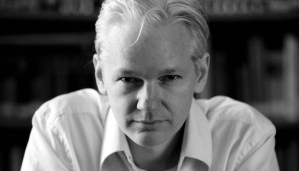
At a court in Virginia, the U.S. Department of Justice outlined the reasons it wants Twitter to hand of data regarding the official Wikileaks account, as well as the accounts of three individuals associated with Wikileaks founder Julian Assange—one of whom happens to be a member of the Icelandic parliament. U.S. prosecutors say the information request is part of their ongoing investigation into the Wikileaks site, which has earned U.S. government ire for publishing the contents of selected diplomatic cables. Many of the cables show the U.S. and its allies in unflattering lights and, according to the U.S. government, at least, potentially put the safety of confidential informants and other people at risk.
However, lawyers for the American Civil Liberties Union as well as attorneys representing the account holders in question argue the government’s request violates the account holders’ rights to privacy and freedom of association. “What’s at stake here is the ability to use the internet freely and privately, without the government looking over their shoulder,” said the ACLU’s Aden Fine, in an interview.
Attorney’s representing Julian Assange argued that the Justice Department lacks jurisdiction for information regarding the official Wikileaks account.
At the heart of the hearing are still-sealed requests from the Justice Department that Twitter hand over information about the four accounts, including account details and private messages, as well as information like IP addresses and activity logs. Information like IP addresses can potentially be used to track locations of users. The Justice Department’s court order for the information was issued in December; Twitter’s response was to ask that the court order be unsealed so it could inform its users their information was being requested by the government. The existence of the government’s request become public in January, but the exact nature of the order is still sealed. Attorney General Eric Holder has implied that the order may not rely on the U.S.’s Espionage Act, noting in December that his attorneys are looking at other avenues to prosecution as well.
The status of the proceedings implies that Twitter has not turned over the requested information. Prosecutors indicated that their investigation into Wikileaks is still in early stages and is not unusual, describing the information request as a standard investigative tool akin to requesting information about phone records or credit card usage.
The judge did not immediately issue a ruling.
The hearing came on the same day U.S. Secretary of State Hillary Clinton forcefully outlined the importance of Internet freedoms as a U.S. foreign policy priority, while defending the U.S. government’s response to Wikileaks, saying that confidentiality and transparency were not mutually exclusive.


